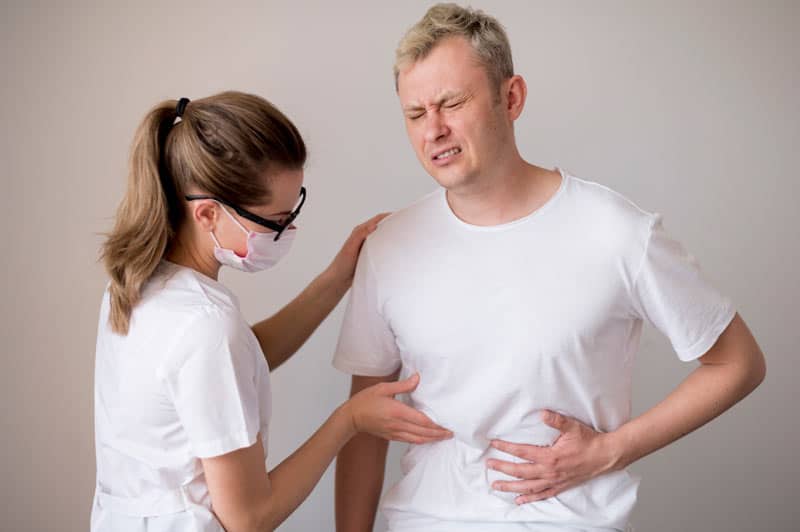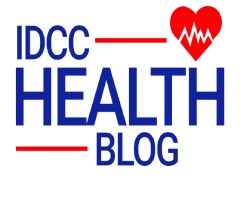Can I Eat Before a Gastroenterology Appointment?
You’re preparing for your gastroenterology appointment, but one question remains—can you eat beforehand, or will it affect your results? The answer depends on the type of test or procedure you’re undergoing. Some require fasting, while others don’t. Before you eat, let’s go over the essential details.
TL;DR:
Whether you can eat before a gastroenterology appointment depends on the specific test or procedure. Most procedures like colonoscopies and endoscopies require fasting to ensure accurate results and safety. If you forget to fast, inform the medical team immediately—rescheduling may be necessary. Preparation may involve a clear liquid or soft diet the day before and avoiding heavy, spicy, or red/purple foods. After the procedure, avoid alcohol, driving, or strenuous activity for 24 hours, especially if sedation was used. Always follow your doctor’s specific instructions for the best outcomes.
See the best gastroenterologist in Brooklyn—book today!

Can You Eat Before a Gastroenterology Appointment?
Preparing properly before a gastroenterology appointment ensures accurate results and prevents potential complications, especially if undergoing a procedure like an endoscopy or colonoscopy.
Avoid food and drinks: Do not eat or drink before your appointment.
Follow medical instructions: Each procedure has specific requirements, so follow your doctor’s guidance.
Minimal hydration: If you need to take medication, do so with small sips of water.
Avoiding food and beverages before a gastroenterology appointment helps ensure safe and effective procedures. If you have specific concerns about fasting or preparation, consult your doctor for personalized instructions.
Learn more about can a gastroenterologist diagnose a hernia
Do All Gastroenterology Tests Require Fasting?
Gastroenterology tests have different preparation requirements depending on the procedure.
Not all tests require fasting, but common ones like colonoscopies and upper endoscopies have specific guidelines to ensure accuracy and reduce risks.
Preparation Requirements for Tests
| Test | Fasting Time | Possible Impact if Not Followed |
| Endoscopy | 8 hours | Procedure may be canceled or postponed. |
| Colonoscopy | As directed | Can affect colon cleanliness and accuracy. |
| Glucose Test | 8-12 hours | Altered results affecting diagnosis. |
| Lipid Profile | 10-12 hours | Inaccurate cholesterol and triglyceride levels. |
| Cortisol Test | Varies | May require dietary and activity restrictions. |
Preparation Recommendations
- Inform your doctor: Mention any medications, especially blood thinners or diabetes medications, as adjustments may be necessary.
- Follow fasting instructions: Stick to the required fasting time to prevent complications like aspiration during sedation.
- Bring necessary documents: Have your medical orders, history, and previous test results.
- Avoid unnecessary items: Skip makeup, nail polish, jewelry, or electronic devices during your test.
Always follow your doctor’s instructions to ensure a smooth and successful examination.
What to Do If You Forget to Fast?
Fasting is essential for many gastroenterology and lab tests. Forgetting this instruction can affect test accuracy and sometimes lead to appointment rescheduling.
Consequences of Forgetting to Fast
Rescheduling: Most tests require an empty stomach or digestive system, so a new appointment may be needed.
Altered results: Recent food intake can lead to incorrect test values.
Time loss: Having to reschedule can delay diagnosis and treatment.
What to Do If You Forgot to Fast?
- Inform medical staff: Let them know when you last ate or drank upon arrival.
- Follow their guidance: Depending on the test and timing, your doctor may decide to delay or proceed with the test.
- Avoid further intake: If there’s a chance the test can still be done later, don’t eat or drink anything else.
- Ask about rescheduling: In some cases, rescheduling is the best option to ensure accurate results.
Special Cases
Your doctor might proceed with the test if they determine that recent food intake won’t significantly impact results. This is more likely if:
- Several hours have passed, allowing partial digestion.
- The procedure is urgent and cannot be postponed.
- Adjustments can be made to accommodate the situation.
Learn more about spleen doctor
What to Eat the Day Before Your Appointment?
Dietary preparation plays a key role before any gastroenterology consultation or procedure. Following specific recommendations helps ensure the digestive system is ready for testing.
Liquid Diet: A liquid diet helps clear the digestive system. Recommended liquids include:
- Filtered broths: Free of solid residues.
- Water: Essential for hydration.
- Tea, coffee, and herbal infusions: Without milk or cream.
- Non-carbonated drinks: Avoid fizzy beverages.
This diet supports minimal digestion and prepares the digestive tract for optimal results.
Soft Diet: If permitted, light, easy-to-digest foods can be consumed:
- Mild foods: Such as rice, pasta, and clear soups.
- Lean proteins: Steamed or boiled chicken or fish.
- Gelatin: Preferably without red or purple dyes.
- Soda crackers: A simple, digestible snack.
Avoid spicy, raw, or fried foods that could hinder digestive system cleansing.
Foods to Avoid: Certain foods and drinks should be avoided before your appointment:
Heavy Foods
- Carbonated beverages.
- Fried and fatty foods.
- Beans, dairy, and red meats.
- Fruits with seeds and unstrained fruit juices.
- Canned and processed meats.
Beverages and Substances
- Red or purple liquids: These can interfere with procedures.
- Alcohol and caffeine-based drinks.
- Chewing tobacco and illicit substances.
Learn more about does fasting kill parasites
Post-Appointment Recommendations
After a gastroenterology procedure like an endoscopy or colonoscopy, following certain guidelines helps ensure a safe recovery and minimizes complications. These steps are simple but significantly impact well-being.
If sedation was used, avoid operating machinery or driving for 24 hours. Medications can impair coordination, reaction time, and focus, increasing accident risks.
For the first 24 hours after the procedure, avoid alcohol, as it may interact with sedatives or worsen digestive discomfort. Refrain from smoking or consuming substances that could irritate the digestive tract. These precautions support recovery and reduce risks such as nausea or minor bleeding.
While most patients can resume normal activities the next day, it’s best to listen to your body and avoid strenuous physical activity if feeling fatigued or uncomfortable. Staying hydrated and choosing light meals can also promote faster recovery.
Following these recommendations helps ensure a smooth experience after your gastroenterology procedure.
Key Takeaways:
- Fasting Before a Gastroenterology Appointment
- Eating before your appointment depends on the specific procedure.
- Tests like colonoscopies, endoscopies, glucose tests, and lipid profiles often require fasting for accurate results.
- Always follow your doctor’s specific instructions regarding food and drink.
- Common Fasting Requirements by Test
- Endoscopy: No food or drink for 8 hours.
- Colonoscopy: Strict preparation guidelines including fasting.
- Glucose Test: Fasting for 8–12 hours.
- Lipid Profile: Fasting for 10–12 hours.
- Cortisol Test: May have dietary/activity restrictions.
- If You Forget to Fast
- Inform the medical team immediately.
- Tests may be postponed or altered to ensure accuracy.
- Avoid further food or drink if there’s a chance the test can still be performed later.
- Pre-Appointment Dietary Guidelines
- Liquid Diet: Clear broths, water, tea/coffee (no milk), and non-carbonated drinks.
- Soft Diet (if allowed): Light foods like rice, pasta, steamed chicken, and soda crackers.
- Foods to Avoid: Fried foods, red meats, dairy, beans, carbonated drinks, red/purple liquids, alcohol, and caffeine.
- Preparation Tips
- Bring all necessary medical records and medication lists.
- Inform your doctor of medications, especially blood thinners or diabetes treatments.
- Skip makeup, nail polish, jewelry, and electronic devices on the day of the procedure.
- Post-Procedure Recommendations
- If sedation was used, avoid driving or operating machinery for 24 hours.
- Avoid alcohol, smoking, and heavy physical activity.
- Eat light meals and stay hydrated to support recovery.
- Importance of Proper Preparation
- Proper fasting and preparation ensure test accuracy, safe procedures, and effective diagnosis and treatment.
- Always consult your doctor if you have questions or concerns about the preparation process.
Sources:
- Telford, J. J., Rosenfeld, G., Thakkar, S., & Bansback, N. (2021). Patients’ experiences and priorities for accessing gastroenterology care. Journal of the Canadian Association of Gastroenterology, 4(1), 3-9.
You may also like
- What to Expect from a Gastroenterologist Appointment
- Are Hepatology and Gastroenterology the Same?
- Can You Eat Before a Cardiology Appointment?
IDCC Health Services: Kings Hwy 445
445 Kings Hwy, 2nd Floor,
Brooklyn, NY 11223
Email: info@idcchealth.org
Phone: 718-715-0613
IDCC Health Services: Stillwell Ave
2846 Stillwell Ave,
Brooklyn, NY 11224
Email: info@idcchealth.org
Phone: 718-715-0613
IDCC Health Services: Kings Hwy 201
201 Kings Hwy,
Brooklyn, NY 11223
Email: info@idcchealth.org
Phone: 718-715-0629
Ready to Visit IDCC Health Services?
Find the nearest location and get directions to start your health journey with us today.
